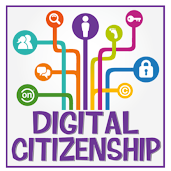Concept
Digital citizenship refers to the responsible and ethical use of technology and the internet. It involves understanding how to navigate the digital world safely, respectfully, and responsibly. The importance of digital citizenship lies in promoting a safe and respectful online environment for all users. By practicing good digital citizenship, individuals can help combat cyberbullying, protect their privacy, and contribute to a more positive online community. Additionally, being a responsible digital citizen can help individuals build important skills for success in the digital age, such as critical thinking and media literacy.
Characteristics of a good digital citizen
1. Privacy and security
Digital citizens should be aware of how to protect their personal information online and understand the importance of keeping their data secure.
2. Responsibility
Digital citizens should take responsibility for their actions online, including respecting copyright laws and understanding the consequences of their behavior.
3. Respect for others
This involves treating others online with kindness and respect, refraining from cyberbullying or engaging in harmful behavior.
4. Online etiquette
Understanding appropriate behavior in online interactions, such as using proper language and tone, is important for fostering a positive digital community.
5. Engagement and participation
Actively participating in online communities in a positive and constructive manner can contribute to a healthy digital environment.
Nine Elements of Digital Citizenship
- Digital Access: full electronic participation in society.
- Digital Commerce: buying and selling of goods online.
- Digital Communication: the electronic exchange of information.
- Digital Literacy: the capability to use technology, when and how to use it.
- Digital Etiquette: the standard of conduct expected by other users.
- Digital Law: the legal rights and restrictions governing technology use.
- Digital Rights and Responsibilities: the privileges and freedom of all users.
- Digital Health and Wellness: physical and psychological well-being related to technology use.
- Digital Security: personal safety and security of the user's network.
Role of teachers in Digital Citizenship
Bhutanese teachers play a crucial role in promoting digital citizenship among students by educating them about responsible online behavior, fostering digital literacy skills, and modeling positive online conduct. Through their guidance, teachers can help students understand the importance of being responsible digital citizens and the potential risks associated with inappropriate online behavior. By teaching students how to critically evaluate online information, navigate digital resources effectively, and engage in respectful online interactions, teachers empower students to make informed decisions and contribute positively to the digital world. Additionally, by creating a safe and inclusive digital learning environment, teachers can cultivate a culture of respect, empathy, and diversity online, where students feel comfortable expressing themselves and collaborating with their peers in a positive manner.
Furthermore, teachers can integrate digital citizenship education into the curriculum, incorporating lessons, activities, and discussions on topics related to online safety, privacy, security, and ethical use of technology. By embedding digital citizenship principles into various subject areas, teachers provide students with the knowledge and skills they need to navigate the digital world responsibly. Additionally, teachers can collaborate with parents, caregivers, community members, and other stakeholders to reinforce consistent messages about responsible online behavior and support students in developing healthy digital habits both in and outside the classroom.




Comments
Post a Comment